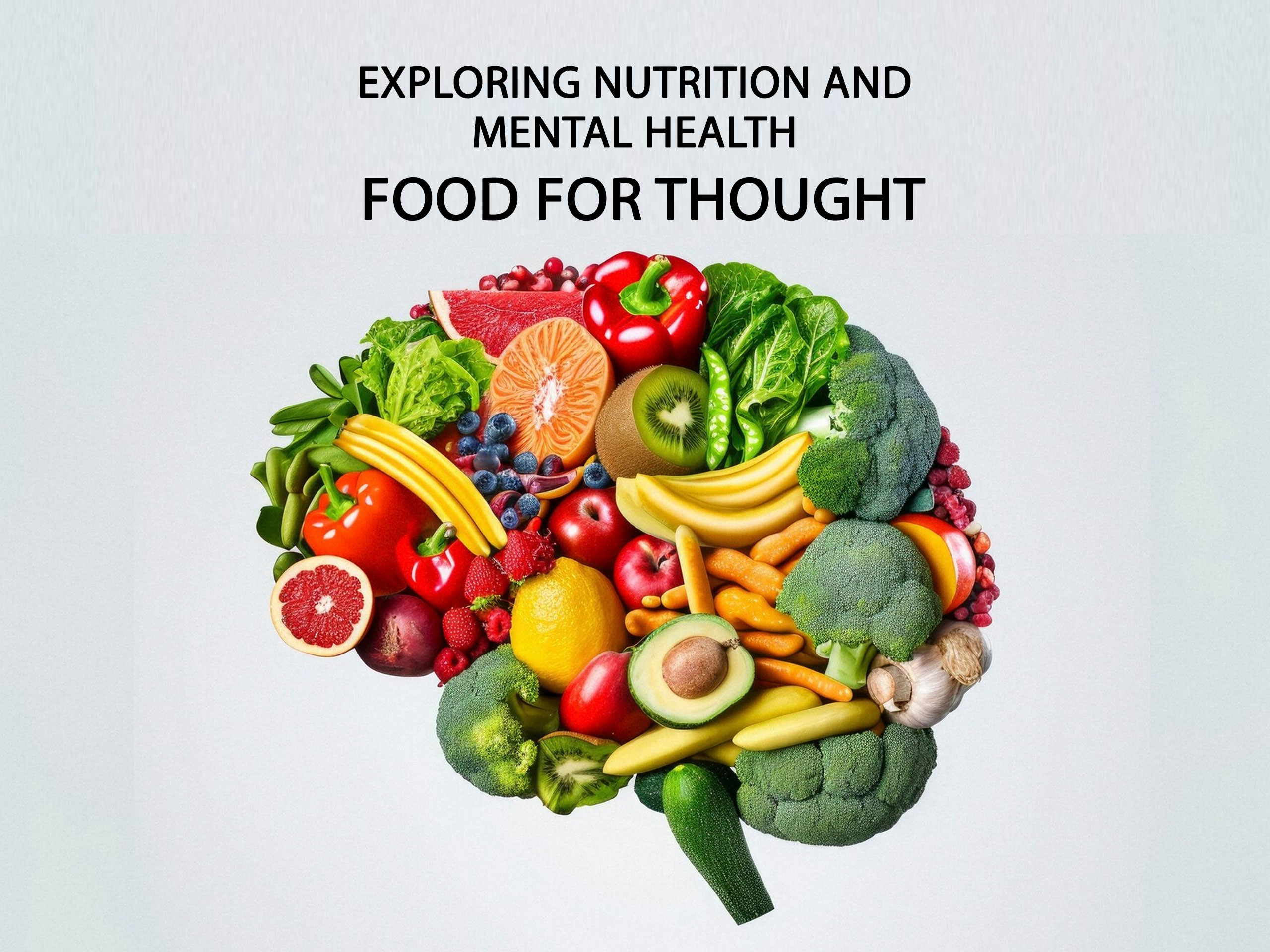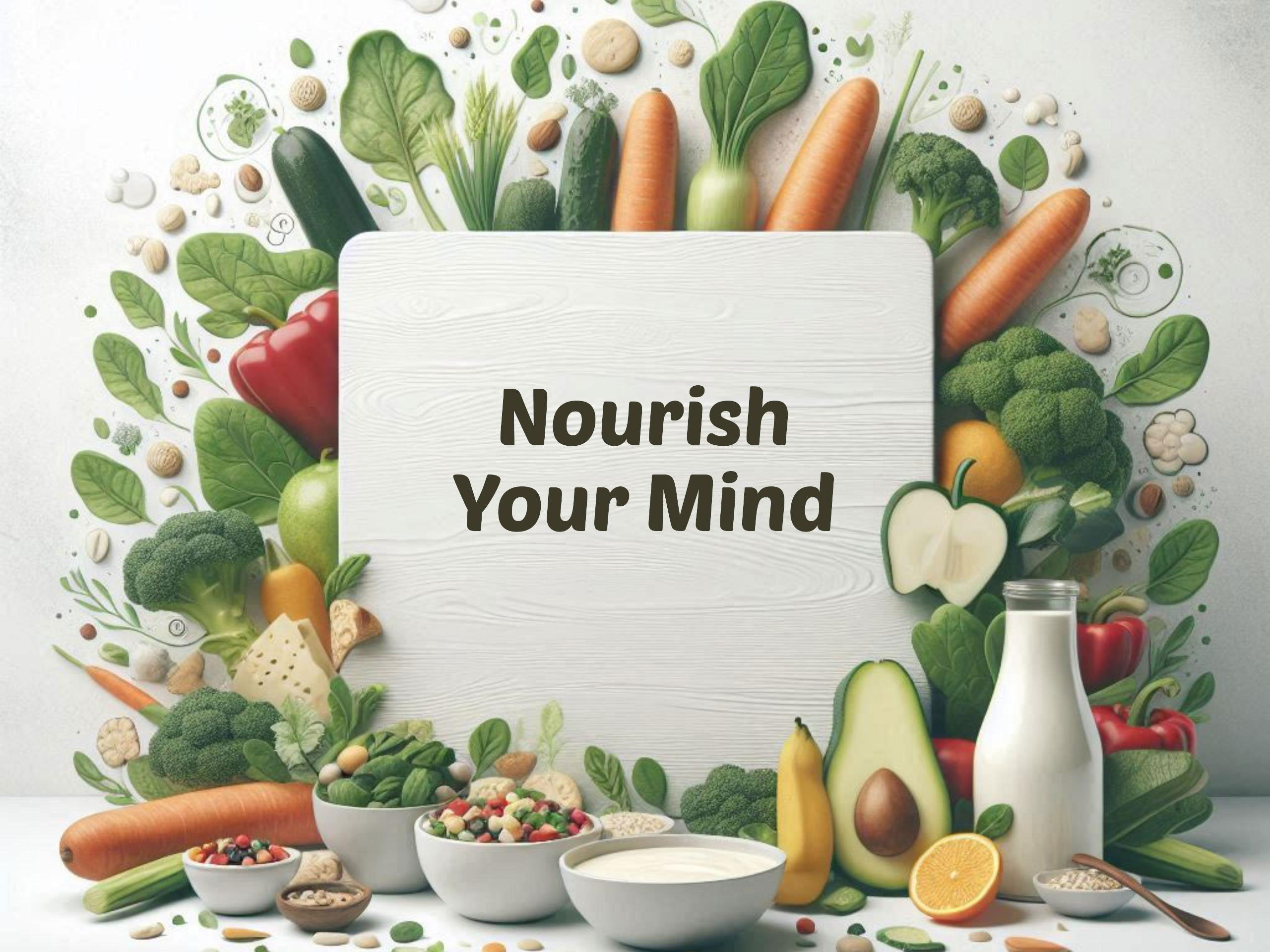Nutrition and Mental Health: The Food-Mood Connection

Have you ever noticed how your mood can change after eating a certain meal? It's not just a coincidence. The foods we eat can greatly affect our mental health. This connection between nutrition and mental health is becoming increasingly recognized by experts.
The Role of Nutrients in Brain Function
Our brains are complex organs that require a constant supply of nutrients to function optimally. Essential nutrients like vitamins, minerals, and omega-3 fatty acids play crucial roles in:
- Neurotransmitter production: These chemicals transmit signals between nerve cells, affecting mood, memory, and learning.
- Inflammation regulation: Chronic inflammation has been linked to various mental health conditions, including depression and anxiety.
- Gut-brain axis: The gut and brain are connected through the vagus nerve and communicate through hormones and neurotransmitters.

Foods that Nourish the Mind
Here are some foods that can support your mental health:
1. Omega-3 fatty acids:Found in fatty fish such as salmon, mackerel, and sardines, as well as flaxseed and walnuts.
2. Whole grains: Rich in B vitamins, which are essential for brain function and mood regulation.
3. Fruits and vegetables: Packed with antioxidants and vitamins, which can help protect the brain from oxidative stress.
4. Lean proteins: Provide amino acids needed for neurotransmitter production.
5. Probiotics: Found in yogurt, kefir, and fermented foods, can support gut health and influence mood.
The Effect of Diet on Mental Health Conditions
Research has shown that a healthy diet can be beneficial for individuals with mental health conditions such as:
- Depression: Studies have linked a Mediterranean-style diet, rich in fruits, vegetables, whole grains, and fish, to lower rates of depression.
- Anxiety: A diet high in processed foods and added sugars has been associated with increased anxiety symptoms.
- Bipolar disorder: Omega-3 fatty acids may help stabilize mood in individuals with bipolar disorder.

Tips for a Healthy Diet and Mental Wellness
- Limit processed foods: These often contain unhealthy additives and can contribute to mood fluctuations.
- Eat a balanced diet: Consume a balanced diet with a variety of fruits, vegetables, whole grains, lean proteins, and healthy fats.
- Stay hydrated: Dehydration can impair mood and cognitive performance.
- Practice mindful eating: Pay attention to your body's hunger and fullness signals.
- Consider supplements: If you have deficiencies in certain nutrients, your doctor may recommend supplements.
Remember that a good diet is only one component of overall mental wellness. Exercise, sleep, and stress management are also key aspects to consider. By nourishing your body and mind, you can improve your overall well-being.
Note: This is for informational purposes only and should not replace professional medical advice. Always consult a healthcare professional before starting any new treatment or session.
Join our community today and take the first step towards a healthier, more balanced you.
Photo: @Freepik, @unsplash, @Microsoft Designer

